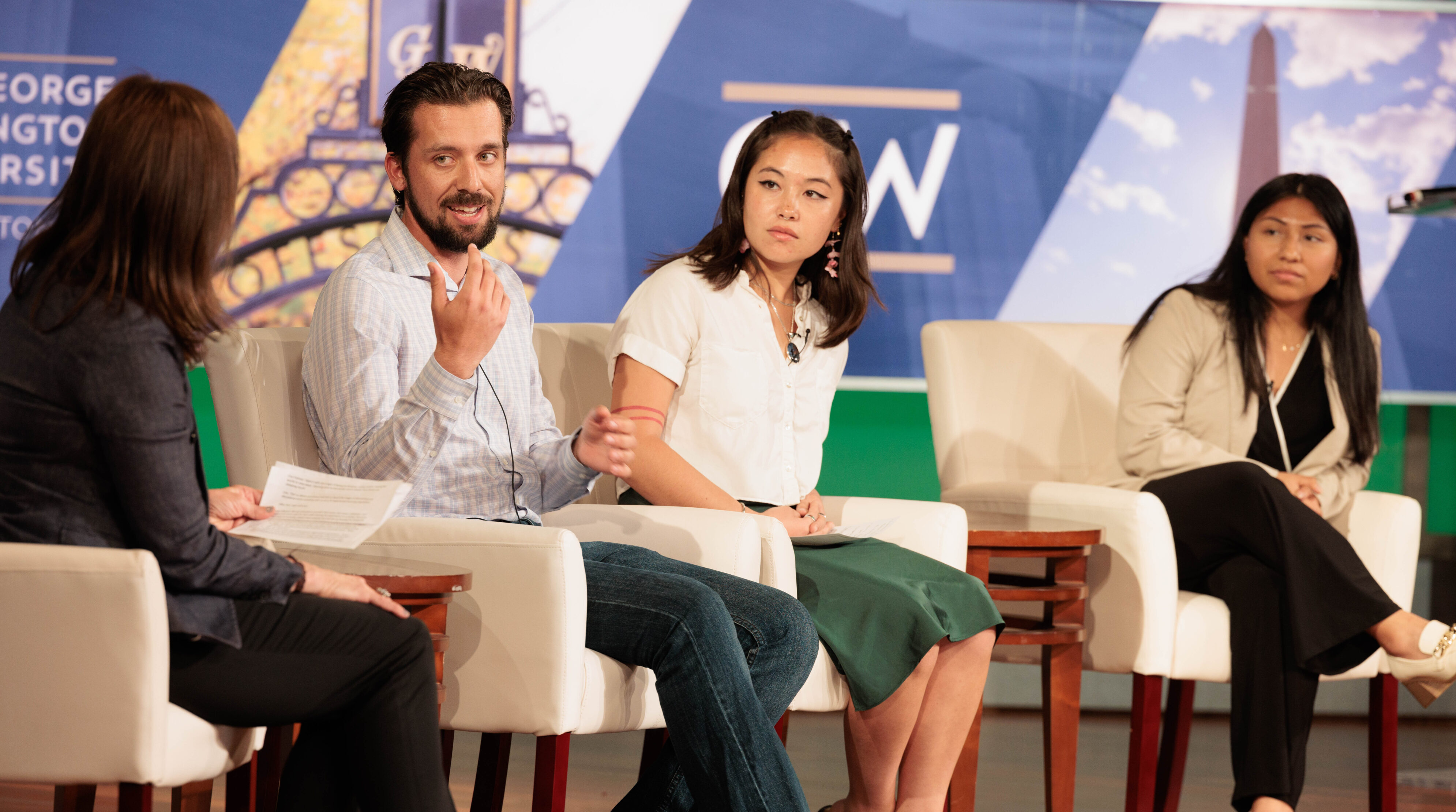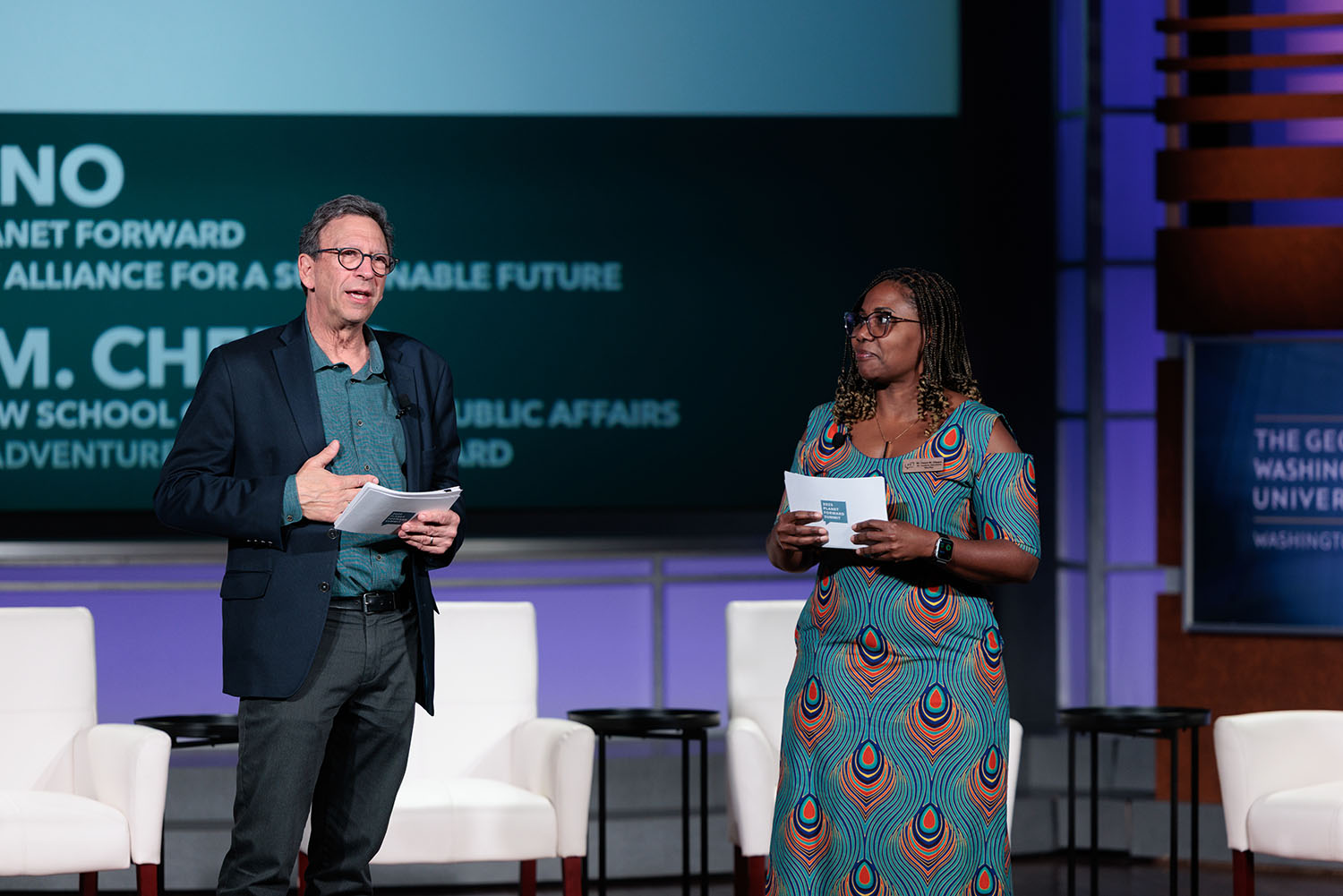Georgetown's McDonough School of Business recently hosted a Net Impact SolutionLab that had students consider a social problem and come up with innovative business plans to solve it.
Net Impact SolutionLab: Three Solutions in Food and Sustainability
By Katlyn Manka, Planet Forward Intern/Marymount University
Videos by Juhan Yoon, Planet Forward Intern/George Washington University
Georgetown’s McDonough School of Business hosted their third Net Impact event, a SolutionLab on Nov. 9 that prompted students to consider a social problem — this event’s topic was food and eating healthy — and come up with innovative business plans intended to solve the issue.
Panelists asked students attending the lab to come up with solutions to particular problems posed when promoting healthy eating in the wake of poverty and growing food insecurity among urban and suburban populations. Though hunger was the prime issue, themes of environmentally friendly innovation and sustainable business were present in each proposal.
Here are the top three solutions on the topic, while also considering sustainability:
1. Food trucks. Many groups proposed mobile vehicles as an efficient way to distribute food by bringing it directly to the people and proposed sustainable fuel options like bio-ethanol. From low cost food truck to salvaged produce on wheels, trucks were a popular innovation among students at the solution lab.
2. Upcycling food and using natural preservatives. Reducing the amount of wasted food was certainly high on the list during the session. Many students sought to incorporate the issue into the solution to their problem, discussing possibilities for salvaging produce and increasing shelf life. Panelist JP Hill from DuPont Nutrition and Health discussed his company’s goals to substituting natural preservatives in order to make preserved food healthier and the importance of educating customers. Learn more from Hill by watching this interview:
3. Maximizing the grocery store experience. One group proposed a grocery application connected to store inventory that would cue shoppers to buy healthy items on sale as part of a larger meal plan for the week. Another suggested community outreach in the form of a weekly dinner basket of sale items. While these ideas were all wonderful ideas to improve the health and reduce spending of shoppers, the real winner in sustainability was the “storefront” idea. In an urban community, a grocery or a convenience store would normally take up a huge amount of space, but one group dared to imagine reducing that huge building to only the checkout. Customers could order ahead by phone and simply come pick up their purchase or come and order their groceries at the register. The savings in space and energy costs would be massive and leave room for larger buildings in a community to serve as housing or be appropriated in other ways.
Despite the focus on public health and food choices, many of the innovations generated by students were environmentally friendly and sustainable. Further, the plans that participants proposed weren’t just focused on hunger and waste as problems; business was just as large a part of the event. The bright ideas brought to the table were meant to be profitable and sustainable as actual products or companies that would collaborate with other initiatives. More events like those produced by Net Impact could certainly spread the message that thinking in terms of the planet is more profitable than most people are aware of.



















